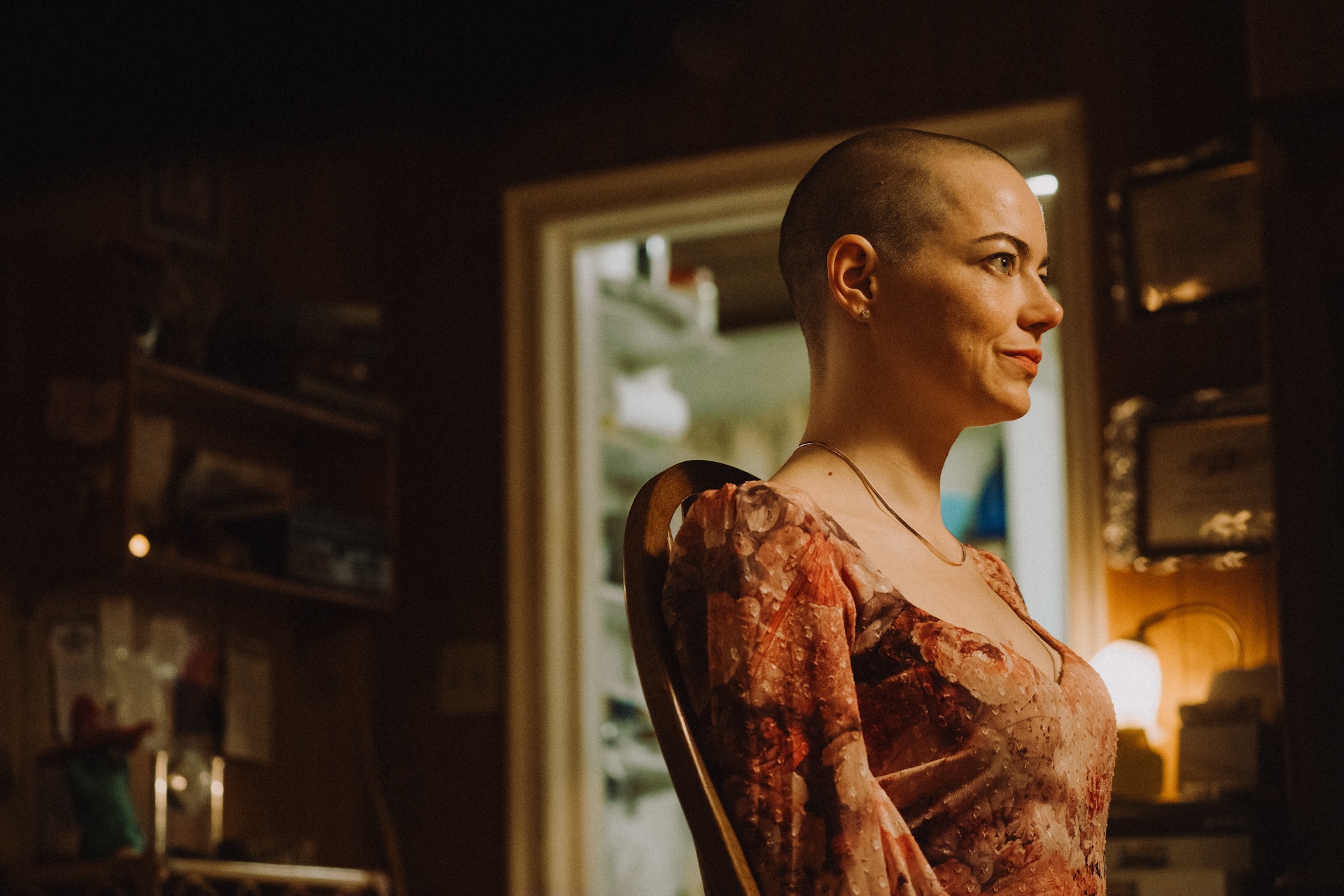A fly-on-the-wall documentary about the making of an $120 million movie that nobody saw and even fewer people liked, Mike Figgis’ “Megadoc” — shot on the Fayetteville, Georgia set of Francis Ford Coppola’s “Megalopolis” — boasts all the fineries of a DVD bonus feature, and makes little effort to contextualize its footage for anyone who isn’t already on a first-name basis with immortal characters like Clodio Pulcher and Wow Platinum. (Both of whom were only immortal in the figurative sense, of course, as the former was hanged upside down like Benito Mussolini, while the latter was killed by a crossbow that Jon Voight disguised as his dick.) But don’t let that stop you from watching it.
Yes, it’s true that I belong to the small cohort of critics who were charmed by the childlike optimism of Coppola’s greatest folly. And no, my feelings about “Megalopolis” — which I saw as the strangely egoless self-portrait of an eccentric genius who dared to stake his fortune on a more optimistic vision of the future — haven’t diminished since the film’s humiliation ritual of a release, even if public opinion about the movie has somehow gotten worse over the last 15 months.
I don’t mention all of that as a point of pride (it’s not), but rather to establish where I’m coming from when I argue that Figgis’ doc — patchy and unpolished as it is — reaffirms what I found so vital about “Megalopolis” at the same time as it illustrates why it was still a singular trainwreck.
“Cinema is the only art that kills what it’s trying to preserve,” Coppola declares, and the last 30 years of his career — starting with “One from the Heart,” but very much including “Jack” — have stemmed from his efforts to capture that thing without snuffing it out. To create a cinema that doesn’t feel like a succession of taxidermied images. To his mind, movies are so moribund because people approach them as work; as fossilization rather than creation. “Toil gives you nothing,” he declares at some point during the long and wacky rehearsal process for “Megalopolis.” “Play gives you everything.”
But at what cost? It’s no secret that Coppola invested a fortune of his own money to fund this movie, and to buy himself the luxury of making it on his own terms. The prospect scares him, as he confesses to his late wife Eleanor in a brief snippet of footage that Figgis includes from before the shoot (it’s fitting that “Megadoc” begins and ends as a tribute to the director of the greatest Coppola-in-crisis documentary ever made), but as Jacques Tati once said: “Who cares if you died broke if you put all your money into something you think is beautiful?”
A lot of people, it turns out. Made in the face of an industry so choked of its creative lifeblood that movie-lovers have started evaluating films like accountants, “Megalopolis” should have been received with the graciousness of an unsolicited gift, but most pundits were more only interested in the receipt. I can’t begrudge anyone for rolling their eyes at such a clunky, garish, and unrelentingly sincere technofable that feels like it’s been reheated in the microwave one — or 100 — too many times since Coppola started thinking about it in 1983, but I was saddened by the sheer hostility that greeted the mere idea of a self-funded passion project, as if it were gauche and embarrassing for a revered auteur to sink his wine money back into art without any real hope of recouping his investment. “What currency am I paid in?,” Coppola asks a combative Shia LaBeouf. The actor guesses “love.” The correct response was “fun.”
The movies have always been inextricable from the cost of making them, but what might it look like if they weren’t? The collective eagerness to mock the mere existence of “Megalopolis” leads me to suspect that most people may not really want to know the answer. “When we leap into the unknown,” the great Cesar Catilina once said, “we prove that we are free.” The trouble with freedom, of course, is that it exposes our limitations, which can be incredibly frustrating in its own right. Play gives you everything — including a new kind of toil all its own.
“Megadoc” doesn’t offer any kind of who’s-who or what’s-what for people who aren’t already familiar with Coppola’s film, and I can’t pretend to imagine what Figgis’ documentary might be like for people who don’t know what “Megalopolis” is about, but I suspect that it still manages to resolve as a broadly fascinating look at the full toll of filmmaking — not just on the wallet, but also on the soul.
There’s octogenarian Francis Ford Coppola, giddily discussing the Days Inn he bought as a production base and happily misquoting Dante to his cast on the first day of their open-ended rehearsal process (“Abandon worry all ye who enter here,” the director insists). There’s Wow Platinum herself Aubrey Plaza playing some kind of improv game with Dustin “Nush” Hoffman and Nathalie Emmanuel. There’s LaBeouf, looking malevolent without eyebrows as he candidly discusses how he “fucked his whole life up” in the time since he first read the script, and how he had to make amends to Jon Voight as part of the ninth step of his recovery process; this will be the only time the film alludes to incidents of sexual violence, though Figgis appears to include the briefest of snippets from the shoot where Coppola allegedly kissed female extras without their consent.
“Megalopolis” is one of those movies that feels like it offers an accurate window behind the scenes of its own creation process, and “Megadoc” confirms as much without ever becoming redundant. Everyone on location for rehearsal seems excited to be there, even if nobody knows exactly where “there” might be. Although the project had been gestating for so many decades, the footage makes clear that Coppola was still most animated by the thrill of discovery, and that he was eager to run with any of the enthusiasm that his collaborators brought to the table.
The specifics of how that worked are largely left to the imagination (“Megadoc” is curiously short and scattershot for a documentary that must have been culled from untold hours of footage), but the mad circus vibe comes through loud and clear. Everyone seems to be high on the “is this really happening?” of it all, especially the department heads, who appear equal parts thrilled and nervous about the scale of the job at hand.
Likewise, almost nobody seems bothered by the presence of Figgis’ Nikon Z8 camera, as if there’s a communal agreement that it would be wrong not to record the making of a movie that has been fighting to get off the ground for so long. (“Megadoc” includes several clips from earlier table reads and test shoots, which feature the likes of Robert De Niro and a young Ryan Gosling.) Adam Driver is the only person who may have been uncomfortable with the intrusion; a non-presence until the very end of the documentary, his elusiveness makes “Megadoc” feel considerably smaller than its title might imply.
Things become considerably more volatile when the actual shoot begins and Coppola’s Willy Wonka-like charm — as Plaza describes it — is put to the test by the demands of realizing his mad vision once and for all. And by the demands of working with Shia LaBeouf, whose method hinges upon antagonizing his director at every turn. Shooting “Apocalypse Now” was a field day compared with the challenge of getting LaBeouf to accept the blocking of a simple dialogue scene, and Coppola — whose eruptions of anger and subsequent retreats to his Airstream RV fly in the face of the spirit he was trying to cultivate on set — eventually concedes that LaBeouf is “the biggest fucking pain in the ass of any actor I’ve ever worked with.” More than that, Coppola is forced to wonder if he’s become too old and grouchy for this kind of work, which is a crushing thing to ask for someone who’s done everything in his power to make it feel like play.
There are still rules, even within the ultimate freedom. Actors still need direction, bills still need to be paid, and personal boundaries still need to be respected. But to watch “Megadoc” is to appreciate why “Megalopolis” feels more vital than so many other films, and also why it feels completely out of control at the same time. It’s to understand how a legendary auteur can marshal all of his power and personal finances towards the ultimate bet on the future of his art form, only for it to feel like an act of charity — like everyone who participated in the project was only doing so to humor him. It’s to understand that “Megalopolis” was riveting less for its story than for its Schrödinger-like ability to articulate why the movies feel so alive even while they’re dying, and also why they feel so dead even when there’s still so much life in the people who make them.
Grade: B
“Megadoc” premiered at the 2025 Venice Film Festival. Utopia will release it in the United States.
Want to stay up to date on IndieWire’s film reviews and critical thoughts? Subscribe here to our newly launched newsletter, In Review by David Ehrlich, in which our Chief Film Critic and Head Reviews Editor rounds up the best new reviews and streaming picks along with some exclusive musings — all only available to subscribers.



